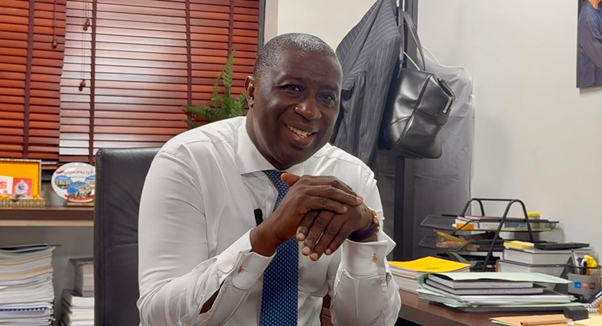The Member of Parliament for Okaikwei Central, Patrick Yaw Boamah, has urged the government to sustain the recent gains in the cedi’s performance against the US dollar, warning that the current stability may be temporary unless decisive action is taken to restore investor confidence and strengthen Ghana’s financial markets.”
The Ghana cedi, which has historically been volatile, has shown relative stability since December 2024—appreciating by 2.76percent against the dollar as of April 2025, according to data from the Bank of Ghana and some commercial banks.
Speaking to Joy Business on the sidelines of the IMF/World Bank Spring Meetings in Washington, D.C., Mr. Boamah said: “It’s about confidence. The trust that economic managers instill in the financial markets and investor community influences projections about the cedi’s performance.”
Ghana recently reached a staff-level agreement with the International Monetary Fund (IMF), paving the way for the release of a US$370 million fifth tranche under the US$3billion bailout programme. Mr. Boamah noted that the injection of funds would help bolster reserves and send positive signals to the business community.
However, he cautioned that outstanding government arrears, estimated at GH¢18 billion, could pose a threat to the cedi’s gains. “We must assess the net effect on the currency if the government begins to clear these arrears. The impact of such a large cash release on currency depreciation must not be overlooked,” he stated.
Mr. Boamah also raised questions about the source of the cedi’s recent appreciation, suggesting a need to determine whether it’s due to sustainable policy measures or temporary interventions by the Bank of Ghana or Finance Ministry.
He further noted that the current trade tensions and tariff issues may be easing demand for foreign exchange, which in turn has helped stabilize the currency. “If importers are not sourcing large volumes of dollars, pressure on the cedi reduces. But once these issues are resolved and arrears are paid, we’ll be in a better position to evaluate the true state of the economy.”
On macroeconomic indicators, Mr. Boamah referenced recent assessments from the World Bank confirming a 5.7percent GDP growth rate for 2024 and a debt-to-GDP ratio of 61.8percent. However, revised projections for 2025 show expected growth dipping to 3.9percent, down from the 4.47percent initially forecast in the budget.
“These revisions reflect the complex challenges we face—domestic arrears, global uncertainties, and local policy constraints. The cedi’s stability is welcome, but we must view it as a temporary relief unless deeper structural issues are addressed,” he noted.










